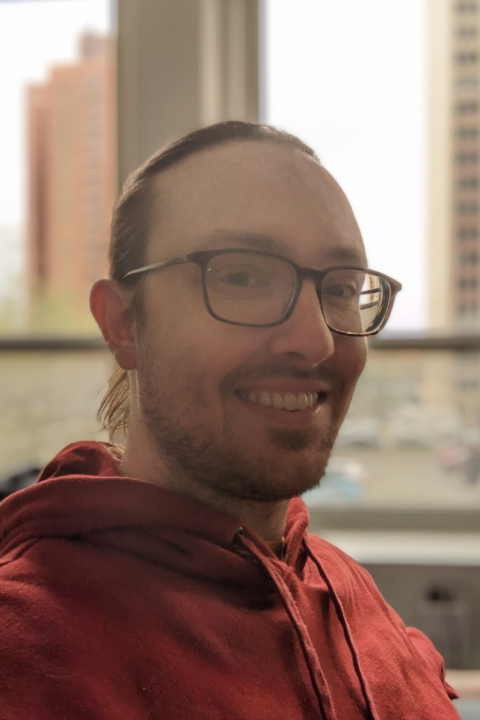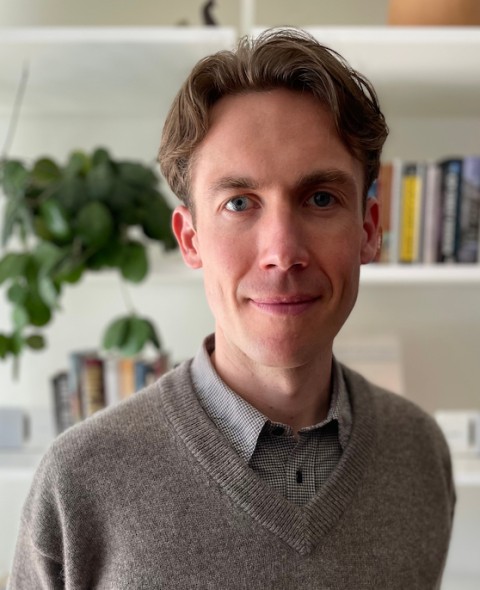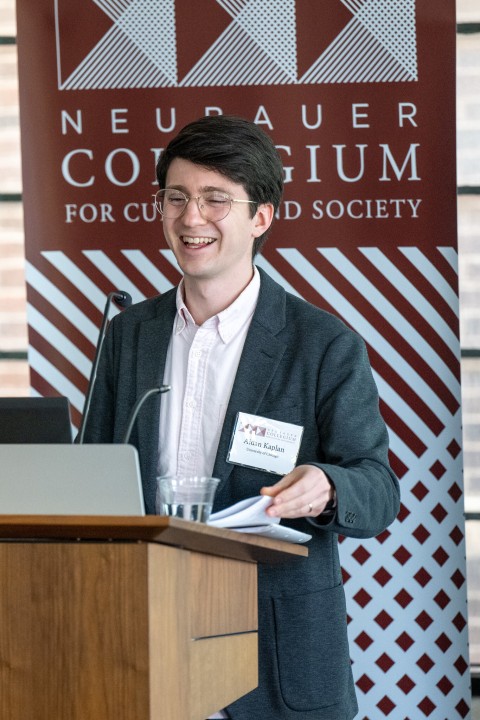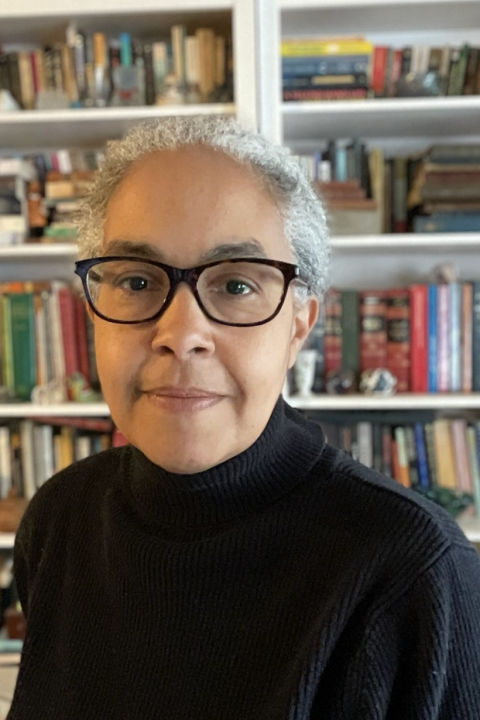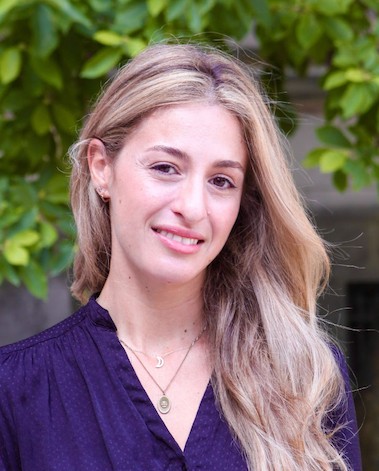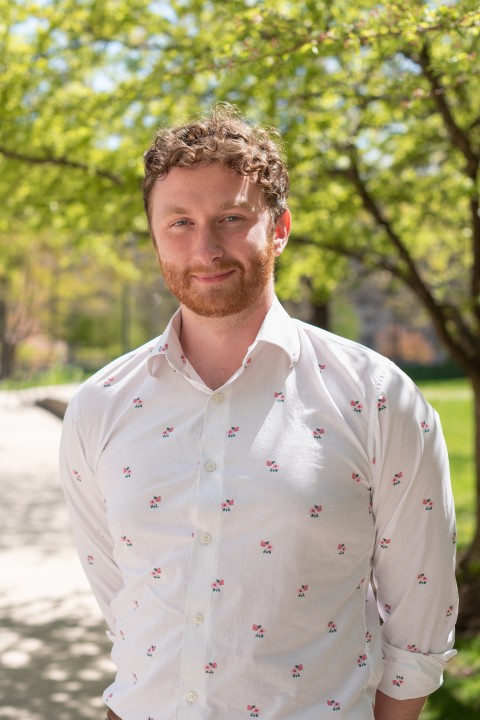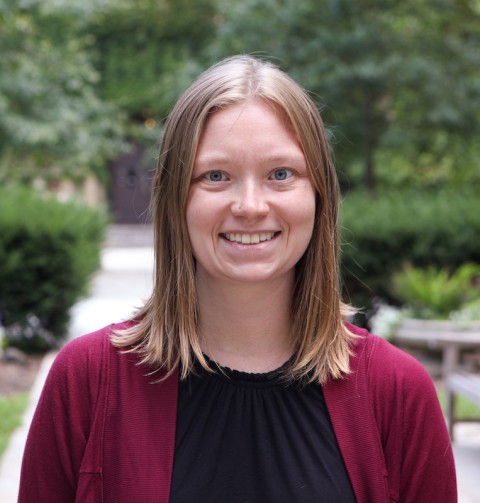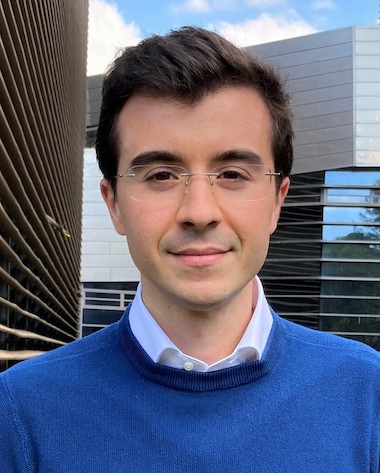The University of Chicago has honored nine instructors and graduate students for their exceptional work as teachers. Nominated by undergraduates in the College, these winners demonstrated the ability to push students to think beyond the classroom, and to share their disciplines in exciting ways.
Kale Davies, Jason De Stefano, Aidan Kaplan and Jennifer Spruill have been awarded the Glenn and Claire Swogger Award for Exemplary Classroom Teaching, which recognizes outstanding teachers with College appointments who introduce students to habits of scholarly thinking, inquiry and engagement in the Core Curriculum—the College’s general education program.
Beatrice Fazio, Sam Knight, Elaine Kushkowski and Francesco Ruggieri have been named the 2023 winners of the Wayne C. Booth Prize for Excellence in Teaching, awarded annually to University of Chicago graduate students for outstanding instruction of undergraduates.
Prize recipients were selected on the basis of nominations from students in the College. The prize itself was established in 1991 in honor of Booth, PhD’50, the late UChicago faculty member who was one of the 20th century’s most influential literary critics.
In addition to the Swogger Award and Booth Prize, five faculty members were recently awarded the Llewellyn John and Harriet Manchester Quantrell Awards.
Learn more about this year’s Swogger Award and Booth Prize recipients below:
Glenn and Claire Swogger Awards
Kale Davies, Assistant Instructional Professor, Mathematics Department
A student who nominated Kale Davies for the Swogger Award referred to his teaching philosophy as the “Guitar Hero Theory.”
"I remember playing the video game Guitar Hero during my undergraduate studies. When you initially observe the expert difficulty, the game moves very fast, it feels incomprehensible, but after enough practice, you can not only play it, it's hard to imagine a time when you couldn't. Students can recall this feeling in previous learning experiences, which motivates them when dealing with new challenges."
When teaching the Math 180s sequence, Davies said he is constantly thinking about his own learning experiences. He believes that he would have benefited from a greater understanding of how exactly concepts related to each other, and envisions a different path for his students.
“I’m always trying to emphasize understanding over simply learning methods and performing computations,” he said. “A big mathematical computation can seem less overwhelming when you observe the problem geometrically and realized that all you did was rotate a picture or zoom in very close to a surface to make it look flat.”
When students leave a course taught by Davies, he said he hopes they do so with a clear understanding of what they’re taking away – not so much of the content itself, but why math is studied, and how it differs from the way scholars in other fields learn to think.
For Davies, the process of learning math, and the struggles that can accompany it, supersedes rote mastery of the subject matter.
“As a professor, recalling your own experiences learning this material and difficulties you may have had can be a shared experience that is very humanizing for everyone involved,” he said. “Gaining the students' trust and being transparent about my learning experiences are some of my highest priorities.”
Jason de Stefano, Collegiate Assistant Professor, Humanities Collegiate Division
Though Jason de Stefano’s area of research is American literature and culture of the nineteenth and early twentieth centuries, he teaches the Human Being and Citizen sequence in the Humanities Core. The class explores the needs and aspirations that draw human beings together in communities through readings that span the gamut from Plato to Toni Morrison.
de Stefano places his students at the center of their own learning by inviting them to bring their own lived experiences to classroom conversations and compare them to those represented in readings, giving specificity and stakes to the course’s topics.
At the end of the quarter, he encourages students to reflect on their perceptions of the concepts before they started the course, and once they’ve completed it.
“Typically, the consensus is that these concepts are more complicated, messy, and less definite than they seemed on day one, which I think is the goal of the course,” said de Stefano. “Through this, I encourage my students to reflect on the authors we studied and their simple but important message: keep asking questions, but also keep thinking about which questions are most worth asking.”
When he was a first-year in the College himself, the Human Being and Citizen course led him to literary study, and now, as a professor, he remains motivated by the course and the students who shape it.
“I think there’s something unique about students’ level of curiosity and engagement at UChicago,” said de Stefano. “Everyone arrives to each class meeting ready to think with one another, to create knowledge together. It makes for a classroom dynamic that’s alive, spontaneous, and often surprising. As a teacher, it inspires me to remain responsive to questions and problems that arise in each class over the course of the year.”
Aidan Kaplan, Assistant Instructional Professor, Near Eastern Languages and Civilizations
Aidan Kaplan teaches Elementary and Intermediate Arabic sequences, as well as a Media Arabic elective. He began studying Arabic as a high school student and through a study abroad experience in Marrakech, Morocco, was inspired to pursue it further as a field of study.
This year, Kaplan’s Arabic language courses encouraged students to see language as a means to express one’s identity and a tool for communication, not just a collection of grammar and vocabulary. Students in his classes interact extensively in Arabic, and each class becomes its own community.
“Becoming proficient in Arabic means learning to navigate a rich, complex sociolinguistic landscape,” said Kaplan. “The question of how to best prepare students for the beautifully messy world of Arabic is far from settled, and my thinking on the subject has developed greatly. I continue to engage with this question in my teaching every day.”
Kaplan said he appreciates the vibrant Arabic language community at UChicago, presenting students and faculty with cultural and academic opportunities, in addition to courses.
The UChicago Language Center is a unique resource, he said, that fosters a vibrant community of practice. He said he has learned a great deal by collaborating with his colleagues who teach languages like Hebrew, German, Catalan, French and Hindi.
“The most important factor in long-term language learning success is motivation,” Kaplan said. “I want my students to leave class with the intent to continue engaging with Arabic and find venues to use their language skills that will leave them eager to learn more and go deeper.
“Even if they never take another Arabic course, I hope they will take their intercultural communication skills and critical thinking about language wherever they go.”
Jennifer Spruill, Assistant Senior Instructional Professor, Social Sciences Collegiate Division
Jennifer Spruill teaches primarily in the Power Identity Resistance Social Sciences Core sequence, for which she serves as Co-Chair. She has also taught a research seminar based on readings and themes from the SOSC Core, a Big Problems class called Digitizing Human Rights, and Self, Culture and Society in the Summer.
Spruill's teaching interests combine her study of both anthropology and law -- lnthropology because she found it to be the most compelling way to understand the expanse of human social life, and law because she understands it as a critical force constituting that life. As she is primarily a theorist, introducing undergraduates to political and social theory is especially rewarding for her.
“I want my students to leave my class better able to understand the world around them and with deeper intellectual eagerness, confidence and generosity not only with regard to others’ ideas, but with regard to their own,” she said.
When grading and advising students about their papers, she said she can’t help but remember her own professors who were “maddeningly demanding of clear writing.” At the time, she said she found this frustrating, but as an instructor now herself, she can appreciate their advice and has the same expectations of her students.
“I try to help my students see the value of expressing complex ideas in understandable ways, rather than writing in order to give the impression of complexity,” she said.
She said UChicago students bring a unique intellectual energy and curiosity to the classroom. Instructors at other institutions, Spruill said, might reserve for more advanced courses many of the texts she teaches to first- and second-year students.
“I know that students here will take a challenging text as an invitation,” she said.
Wayne C. Booth Prizes
Beatrice Fazio, Romance Languages & Literature
Beatrice Fazio never planned on becoming an expert in early modern Italian literature, but she became passionate about it during her college years in Rome. It was only after studying it back in the States, however, that she became aware of the diverse dynamics intrinsic to the discipline outside of Italy.
She has also always enjoyed reading books and learning other people’s stories – a passion that has carried over into her career as an educator in the Division of the Humanities’ Romance Languages and Literatures department.
“My goal is to create a positive, inclusive environment from the very first day of class,” Fazio said about her teaching approach. “We all share an experience that extends beyond the classroom.”
Many students who nominated her for the Booth Prize praised Fazio for creating an enriching classroom environment with both her passion for the subject and interactive teaching methods.
“Her unique teaching style created an environment in which I felt captivated by the material in the classroom and motivated to learn more while outside the classroom,” wrote one student. “Fazio’s presence in the classroom kept us engaged and comfortable speaking up in a non-native language.”
Whether she’s teaching courses on Renaissance and early modern literature, Fazio recognizes that students may feel uncomfortable with the authors and texts they encounter, at first.
“This disrupts the reproduction of frameworks and narratives that allow only one mode of knowing and interpreting,” she said. “UChicago students have always impressed me with their ability to look beyond the surface of primary narratives.”
Another important facet of her teaching approach is the interdisciplinary nature of her classes, shown also by her broad range of research interests, which encompass early modern philosophy, history of ideas, cartography, gender and affect studies.
“I try to relate topics and questions to other disciplines, and to what I think is relevant to their lives today,” she said.
Samuel Knight, Chemistry
Samuel Knight is acutely aware of the impact a teacher can have on a student. For him, that was Michael Barnes, a physical chemistry professor from his time as an undergraduate at the University of Massachusetts-Amherst.
“His ability to teach so effectively while being such a kind and generous person left a big impression on me of how impactful one teacher can be.” Knight said.
He described how much of his fascination with chemistry came from these experiences as an undergraduate, during which he was able to learn from his professors, “Somehow, he was always able to translate the complex equations into an elegant physical picture that always left me floored,” Knight said.
Knight strives to bring a similar focus into his work teaching the Honors General Chemistry sequence at the College. He works to design his course creatively and make typically less exciting topics more fun and engaging to students. In particular, he points to a moment where he connected VSEPR theory to predicting the structure of DNA.
“Traditionally this can be very dry, often reduced to a counting exercise in the number of bonds,” Knight said. However, under his guidance, “they can now see how the exact arrangements they predicted leads to the iconic double-helix structure of DNA.”
Knight credits Dhandapani Venkataraman, his undergraduate research advisor, who taught him that the key to teaching is to recognize the diverse backgrounds students come to the classroom with. Through his teaching sections and individual meetings with students, Knight was able to better understand his students, and appreciates the impact they’ve had on him.
“Everyone takes general chemistry for a variety of reasons and goals; I hope that you’ve been able to achieve whatever you’ve set out to accomplish,” Knight said, to all of his students. “I’m grateful for the opportunity to help along the way.”
Elaine Kushkowski, Committee on Development, Regeneration, and Stem Cell
Elaine Kushkowski knew she wanted to be a developmental biologist from the first moment she saw sea urchin embryos dividing under a microscope during an undergraduate biology lab at Reed College. She then went on to study brain development in zebrafish before pursuing a Ph.D. at the University of Chicago.
Now, in addition to her studies on the developmental origin of a cell type called the neural crest, she puts her passion to use teaching several courses in the Biological Sciences Division.
Over the past few years, these courses have included Biological Systems, Fundamentals of Developmental Biology, a graduate embryology course at the Marine Biological Laboratory in Woods Hole, Mass, and the Biological Sciences Division Teaching Assistant Training Course. Kushkowski is also a Senior Teaching Fellow at the Chicago Center for Teaching and Learning, where she facilitates workshops for graduate students who want to learn more about effective teaching.
Kushkowski approaches teaching by helping students structure information and make connections between topics. One way she aims to accomplish this is by fostering a community that encourages students to engage with one another in the process of learning.
“My students are expected to work together as they build knowledge in their courses,” Kushkowski said. “It’s a joy to teach UChicago students because they are willing to try new ways of engaging with concepts and are motivated to gain deep knowledge of the subject matter.”
“They often find themselves drawing out biological processes, describing new concepts to their peers, or generating review materials that everyone can access,” she added.
Kushkowski recognizes that college is a place to learn new ways of thinking – not just memorizing facts.
“As we sum up each course, I encourage my students to reflect on how their thinking has changed,” she said. “I love seeing students light up when they realize just how much they have grown and learned throughout the quarter.”
Francesco Ruggieri, Economics
Prior to coming to UChicago, econometrics was among Francesco Ruggieri’s least favorite courses. Econometrics is at a unique intersection between economic and statistical theory, he said, but for a long time, he thought of them as disjoint fields.
He now teaches it to undergraduates despite its lack of popularity among students. Managing the subject’s synergies between data and theory is one of the key lessons Ruggieri aims to teach.
“‘Letting the data speak for themselves is an illusion,” Ruggieri said. “The data alone can certainly provide interesting descriptive insights, but theoretical models – even simple frameworks with mild assumptions – are necessary to guide our understanding of real-world phenomena and have an impact on policy.”
Ruggieri employs a unique teaching approach to help students with this difficult course: short recaps of the previous lecture at the beginning of each class. During this portion of the class, Ruggieri encourages students to “fill intentional gaps” in his summaries in order to foster engagement in a course in which the material is cumulative.
Ruggieri said he deeply values the chance to teach UChicago students, who he said have a natural inquisitiveness and desire to achieve a deep understanding of class material. He particularly appreciates the ways in which students draw connections across their courses.
He also said he values the chance to discuss careers in academia with students hoping to enroll in doctoral programs in economics.
“Navigating these steps can be intimidating at first because admission to doctoral programs is competitive and information on how best to proceed is not widely available,” Ruggieri said. “Having experienced the same career uncertainty only a few years ago, I particularly enjoy devoting time to mentoring undergraduate students who are interested in economics research.”
